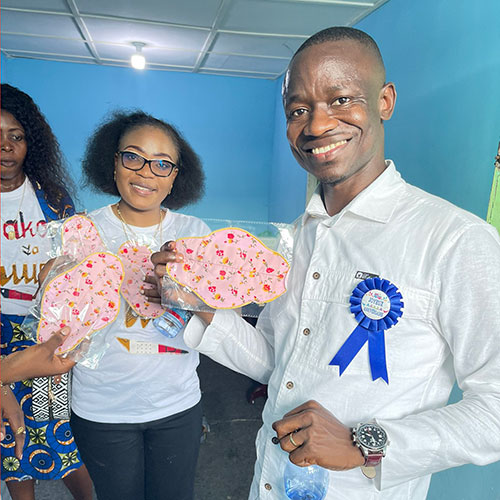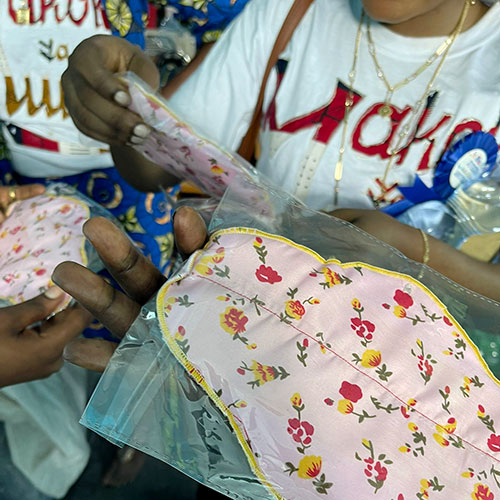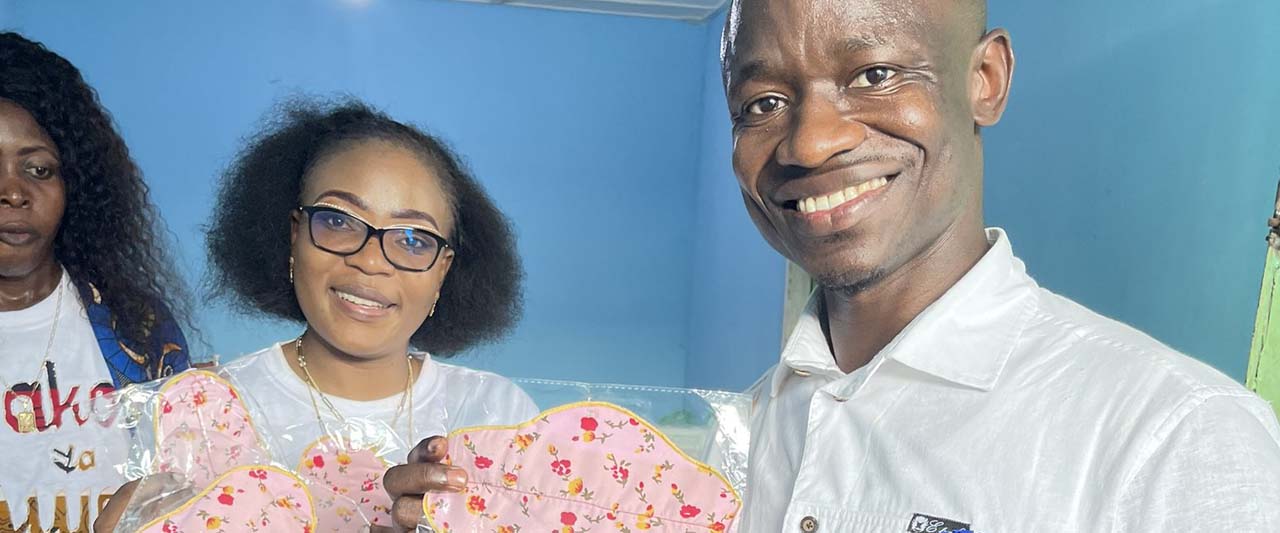During COVID-19, women and girls around the world have faced a surge in gender-based violence (GBV) linked to lockdowns and stay-at-home orders issued by governments in response to the pandemic.
In the Democratic Republic of the Congo (DRC), Ipas is partnering with a woman-led community organization in an effort to help GBV survivors and other women in the community sustain access to sexual and reproductive services during the pandemic.
Ipas DRC and CREEIJ (Cadre de Récupération et d’Encadrement pour l’Epanouissement Intégral des Jeunes) launched the project in October 2020, as the third wave of COVID-19 was arriving in the DRC. CREEIJ, based in Kinshasa, develops training projects for unemployed young people. This project taught 150 women, predominantly GBV survivors, how to make reusable protective masks. Within three months, about 20,000 masks were produced and then purchased by Ipas and distributed to women and girls needing access to facilities providing sexual and reproductive health services.
Production of the masks gave these women the opportunity to learn a new skill that enabled them to gain an income and support their families,” says Dr. Jean-Claude Mulunda, director of Ipas DRC. “An added benefit is that women receiving the masks were able to maintain access to family planning services, comprehensive abortion care, and medical management of rape cases while also preventing the spread of the virus.”


With COVID-19 cases decreasing in the DRC, the focus of the training project has shifted to the production of reusable sanitary towels for women and girls living in low-income areas. Throughout the project, the technical support, equipment and other resources provided by Ipas has been made possible through funding from Global Affairs Canada, which leads Canada’s international development initiatives to empower women and girls and promote gender equality.


